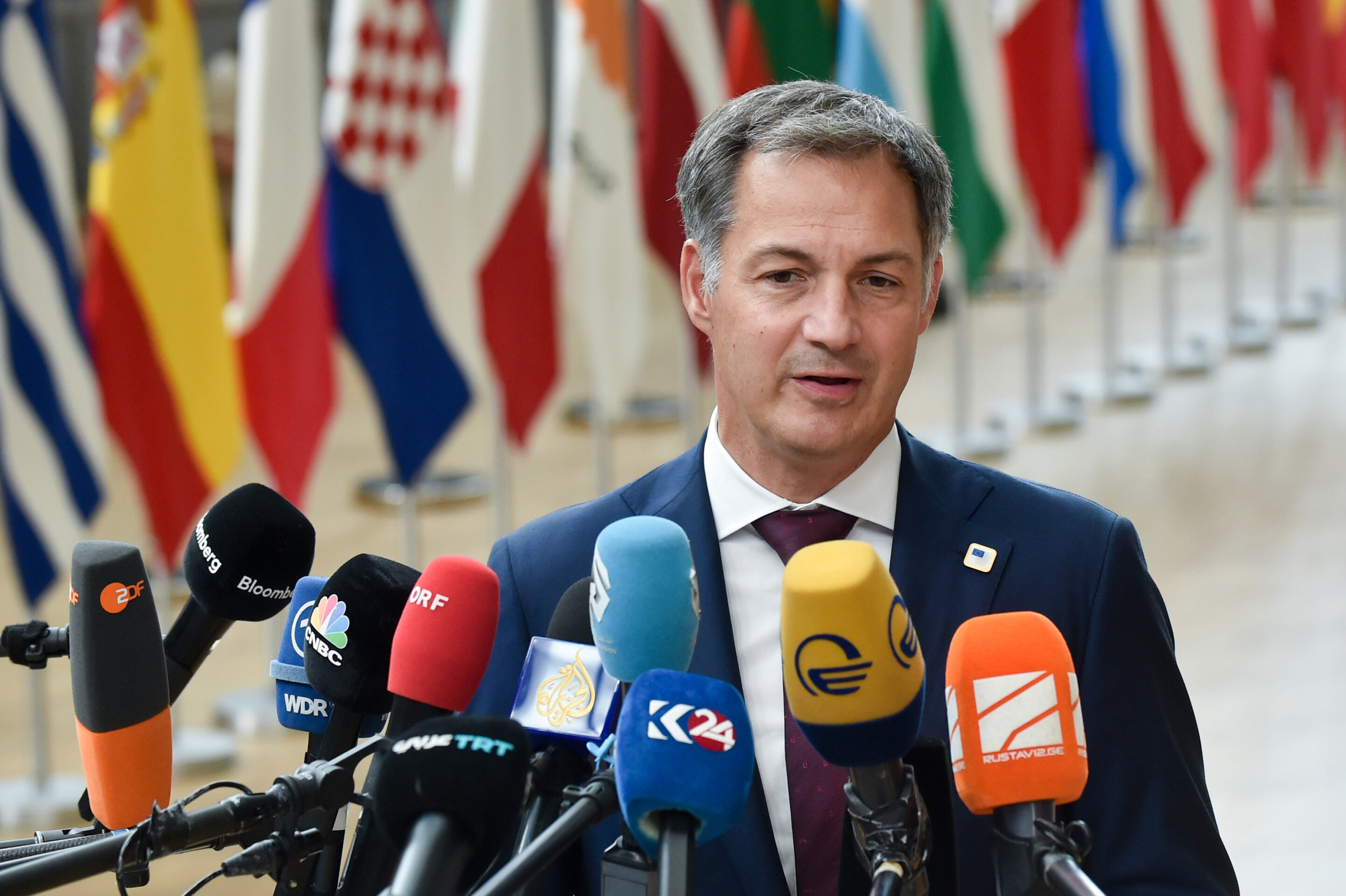Belgium steps down as President of the Council of the European Union on Sunday, after "an intense and productive" six months marked by some difficult negotiations. With 89 legislative dossiers concluded in six months, the Belgian EU Presidency believes it has "got the job done".
Back at the start of the presidency, Belgian Prime Minister Alexander De Croo had set up Belgium's role as perfect for the EU Presidency – not only as its host but also thanks to nature of the country's domestic politics, where negotiations and compromise between the regions are often the order of the day.
"Belgium has the European Union in its DNA. If there is one country that embodies the diversity and the dynamism of the European Union today, I think it is Belgium," he said in December alongside Foreign Minister Hadja Lahbib.
Commenting on Friday, De Croo celebrated having brought legislation forward, having dealt with crises and bringing "competitiveness back to the heart of our discussions."
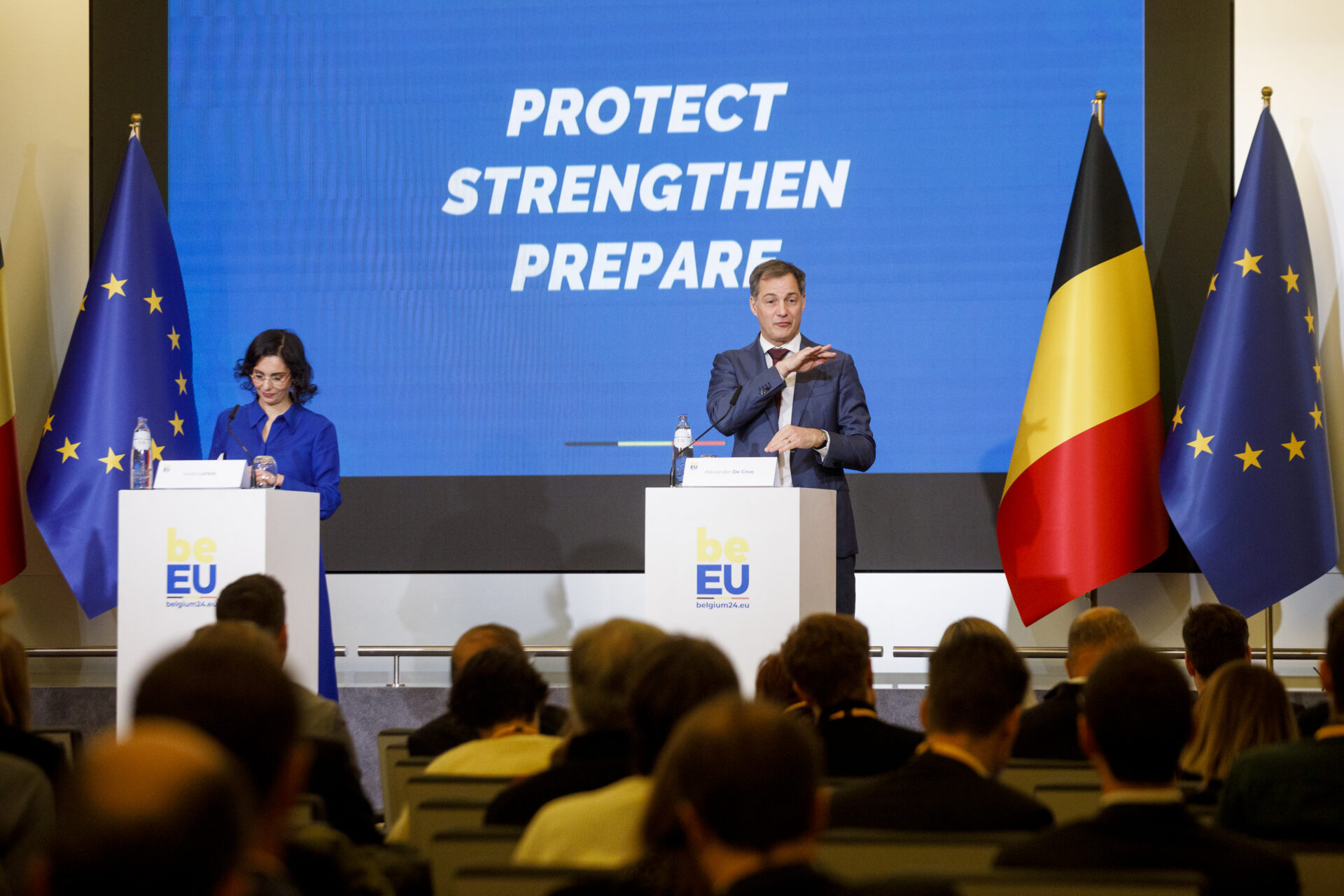
Foreign Minister Hadja Lahbib and Prime Minister Alexander De Croo pictured during the presentation of the official programme of the upcoming Belgian Presidency in December 2023. Credit: Belga / Hatim Kaghat
"These results are a testament of the Belgian spirit to build compromises and get people to work together. It was a privilege for Belgium to take this role for the 13th time in our Union's history. This was truly a dealmaking presidency," De Croo said.
Lahbib took the opportunity to share her "immense pride" at having secured as many agreements as possible, also paying tribute to "the Belgian art of compromise, which once again worked miracles."
'Machine is working'
At the start of the presidency, the De Croo government was under no illusions that it faced a race against time to finish all the outstanding legislative files with the European elections on 9 June, essentially cutting short the regular time afforded to Member States holding the presidency.
Yet the main objective was clear: finalise as many dossiers as possible, a diplomatic source told Belga News Agency. "This is what the other Member States expected of us. I think we succeeded."
In six months, negotiators from the European Parliament and the Council (Member States) reached 69 agreements through trilogues with the European Commission. Nearly 90 final texts were approved by the Council. The representatives of the Member States agreed on 57 negotiating mandates for future trilogues, which will be conducted during the next legislature.
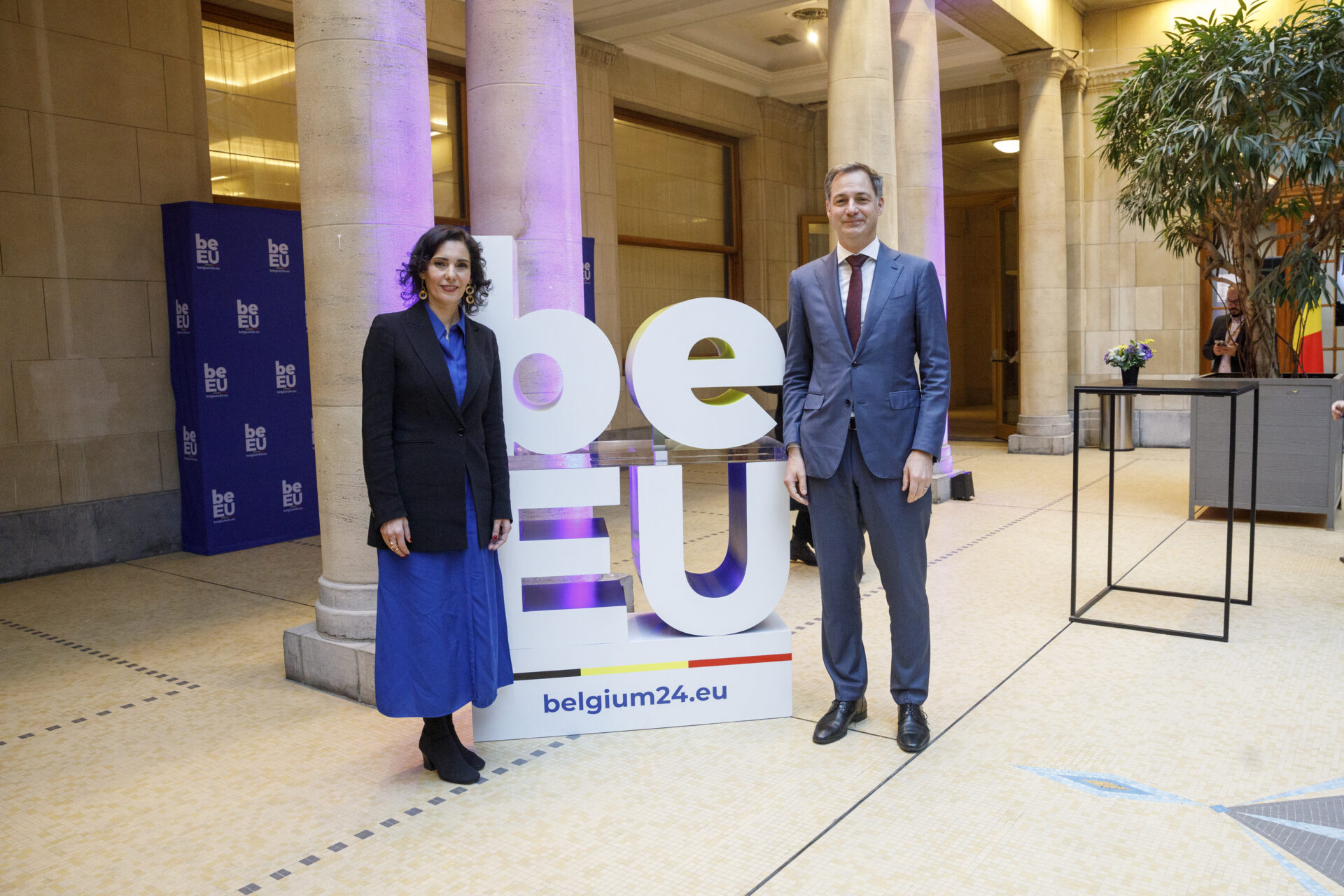
Foreign Affairs Minister Hadja Lahbib and Prime Minister Alexander De Croo. Credit: Belga/Hatim Kaghat
"This shows that the machine is working," said the same source. Being in the decision-making cockpit was an opportunity to see the machinery of European governance at work. "It's almost miraculous to see all the institutions working together."
However, it was not all smooth sailing. The strenuous negotiations for revising the Multi-annual Financial Framework will live long in people's memory, as will finding unanimous decisions on foreign policy, taxation or budget issues. The rigidity of the EU system and the unanimous decision-making method have shown their limits, said various diplomatic backstage sources.
Frozen Russian assets, Ukraine
Among the Belgian Presidency's proudest achievements is the aid to Ukraine and one dossier in particular for Belgium: the mobilisation of the profits from Russian assets frozen in the EU to buy arms for Kyiv. Most of these assets are in fact housed in institutions such as Euroclear that are based in Belgium.
Formal negotiations on Ukraine's accession to the EU also began under this Belgian Presidency. The country was keen to get the process underway before the rotating Presidency passes to Hungary on 1 July. Leaving this to Viktor Orbàn's country, cautious in its support for Ukraine, risked not moving the dossier forward.
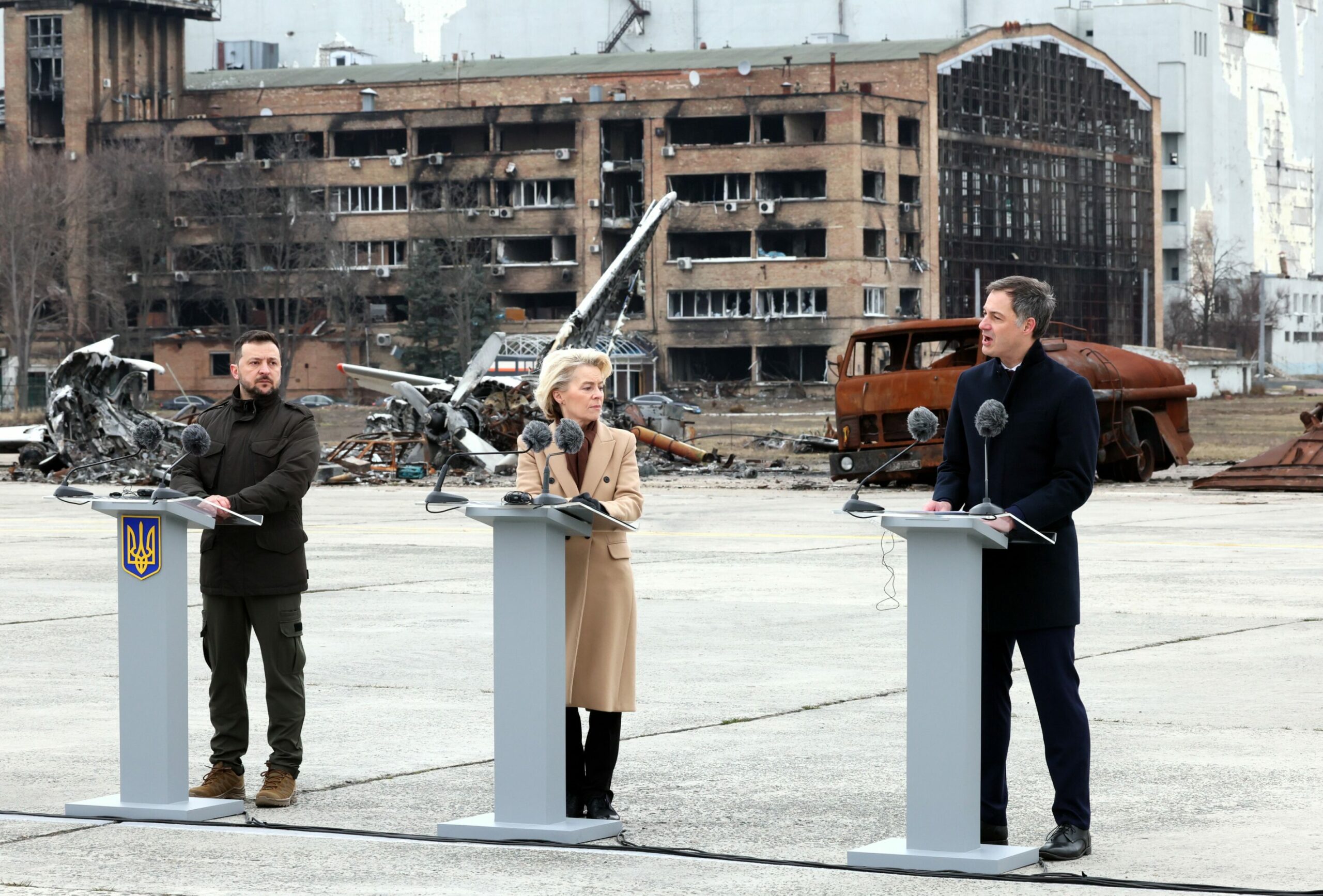
Ukraine President Volodymyr Zelenskyy, European Commission President Ursula Von der Leyen and Belgian Prime Minister Alexander De Croo in Kyiv, Ukraine, Saturday 24 February 2024. Credit: Belga / Doppagne
Ukrainian leader Volodymyr Zelenskyy expressed his gratitude to Belgium and its presidency, which he described as "historic" on Thursday during his visit to the European summit. "Europe has proved that it can be effective. I thank our partners for that," Zelenskyy said on X, adding that he hoped the Hungarian EU Presidency would be just as successful.
Mixed messages on green Deal
The end of the legislature has seen the completion of a series of texts in the Green Pact, a legislative package aimed at making the EU climate-neutral by 2050.
These six months were also characterised by the controversial passing of the EU Nature Restoration Law. For the first time, this legislation set binding targets for the restoration of ecosystems, habitats and species.
It became the subject of fear-mongering by the conservative right and part of the farming community during the European election campaign, but was finally validated by the Member States in mid-June. The final compromise makes it a "measured" piece of legislation that allows Member States flexibility in its implementation.
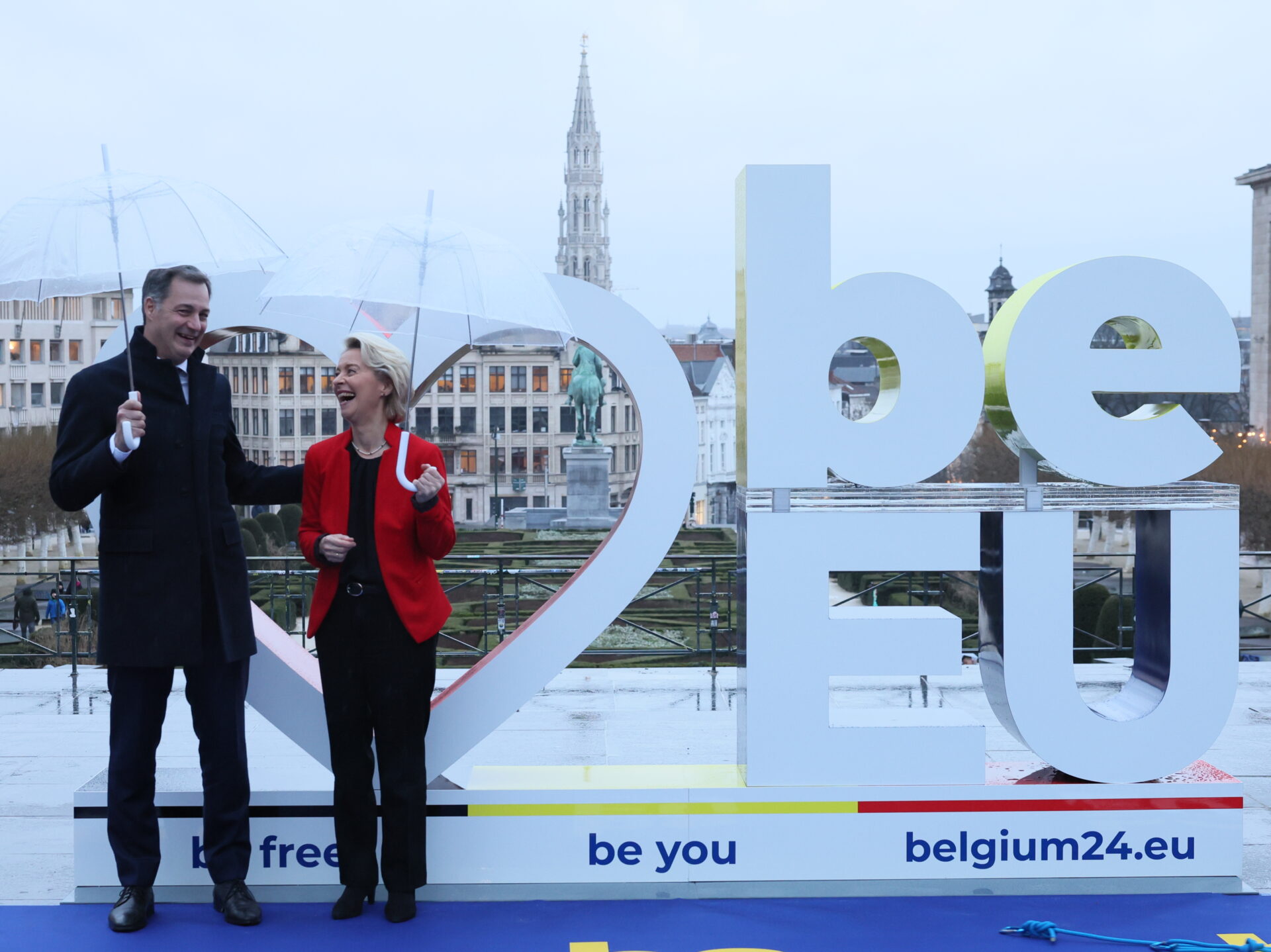
Prime Minister Alexander De Croo and European Commission president Ursula Von der Leyen at the opening ceremony of the Belgian Presidency. Credit: Belga/Benoit Doppagne
The fact that the Belgian entities are divided has led Belgium to regularly abstain, but "this has not prevented us from doing our job as presidency," stressed one diplomat. However, the Prime Minister's office was criticised by other leaders for the interventionist stance against the nature restoration law.
In its final weeks, the Presidency was also marred by the EU's Child Sexual Abuse legislation (or "chat control"), the law to stop the circulation of child abuse images online, which means that messaging services such as Whatsapp, Instagram or Signal would scan for images of abuse in all users' private messages.
Belgium proposed a reworked version which would not include regular texts or voice messages, but only visuals (photos and videos) and URLs – however, the vote was shelved after human rights organisations voiced their opposition and some Member States changed their position.
'Prepare the future of Europe'
Despite the challenges and some setbacks, Belgium is celebrating the end of its 2024 Presidency as a resounding success. "Considerable work has been accomplished" during the Belgian Presidency, De Croo was pleased to report on Thursday.
With a view to the next legislature and a Europe of 30 or more Member States, Belgium was asked to reflect on the future of European policy. On Thursday evening, the heads of state and government approved a new strategic agenda to guide decision-making for the next five years.
"The aim of the Presidency was to protect our citizens, strengthen our economy and prepare the future of Europe," said De Croo at the end of the summit. "I believe we have achieved all these objectives."

